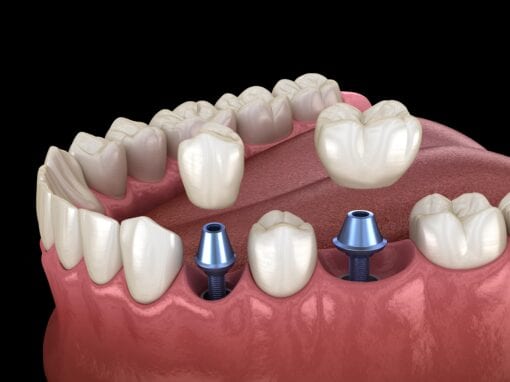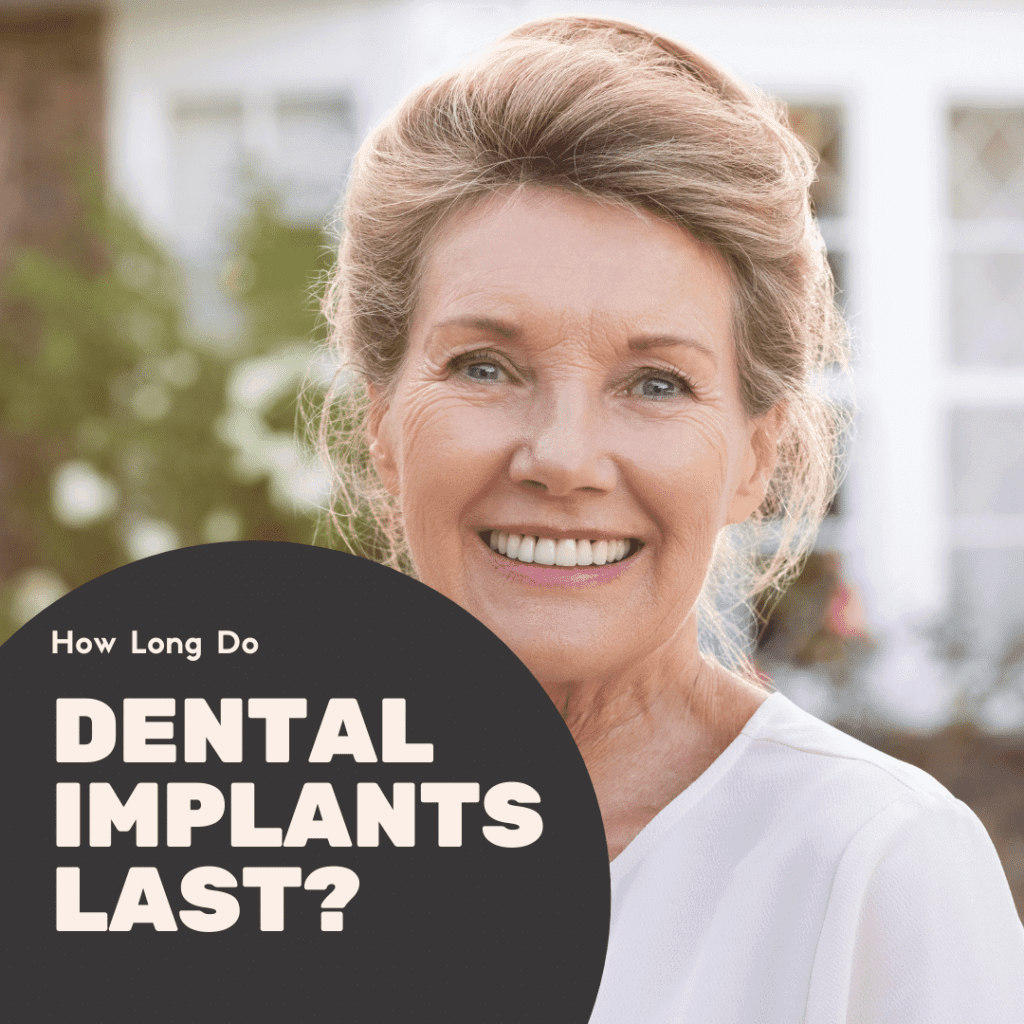Have you been considering having dental implants placed? If so, then you probably have a lot of questions. One common question that people ask about dental implants is how long they last. Since the process of getting dental implants is slightly more involved than getting a denture or bridge placed, most people want to make sure that this will pay off in the long run. However, the question of how long dental implants last cannot be answered with a simple one-size-fits-all answer. This is because there are a few things to consider when determining the anticipated lifespan of a dental implant. These include:
The Structure

The first thing one must consider is the structure of a dental implant. For starters, the term “dental implant” refers to the implant screw or post that is implanted into the jawbone. This piece is hidden entirely underneath the gum line and is not visible once it has been placed. A metal connector post known as an abutment is then screwed into the implant screw. Although the abutment is normally hidden below the dental prosthesis, it can be visible above the gum line when there is no prosthesis. The final component, of course, is the dental prosthesis. This can be a crown, bridge, or denture.
Because there are three different components that make up an implant-supported restoration, each of these components must be considered when determining its lifespan. This is because the different components have different lifespans. The implant screw has the longest lifespan and lasts an average of 25 years. In some cases, they may last even longer. The attached prosthesis, however, does not last as long and generally only lasts about 10-15 years. This is because the prosthesis is exposed to more force on a daily basis than the implant screw, so it wears down faster. The abutment may also need to be replaced when the prosthesis is replaced.
Dental Materials
There are different types of dental materials that can be used to fabricate your dental prosthesis. Some materials are stronger than others and can last longer. With that being said, however, the strongest material may not always be the best material for your oral health needs. Ultimately, you will need to discuss the pros and cons of different materials with your dentist to determine which material will work best for you.
Type of Prosthesis
Another factor that can affect the lifespan of your implant-supported restoration is the type of prosthesis that is used in coordination with your implants. For example, an implant-supported crown used to replace a single missing tooth will generally last longer than an implant-supported denture used to replace an entire arch of missing teeth. This is because more force is exerted on a denture than a single crown.
Location
In the case of an implant-supported crown or bridge, the location in the mouth also can affect how long the restoration lasts. This is because the majority of chewing force is exerted on teeth towards the back of the mouth. This means that restorations in the front of the mouth tend to last longer since they are under less force, while restorations in the back of the mouth tend to wear down faster since they are under high amounts of force.
Oral Habits
Your oral habits can also affect the lifespan of your implant-supported restoration. For example, if you are a bruxer who grinds or clenches your teeth, your restoration will likely wear down faster and need to be replaced sooner. Bruxism can also increase the risk of damaging your restoration, which would also require replacement. Practicing good oral hygiene is also important. Although your implants are not susceptible to decay, excess bacteria in the mouth can cause gum disease. Severe gum disease can cause jawbone deterioration, which can cause your implant to fail.




